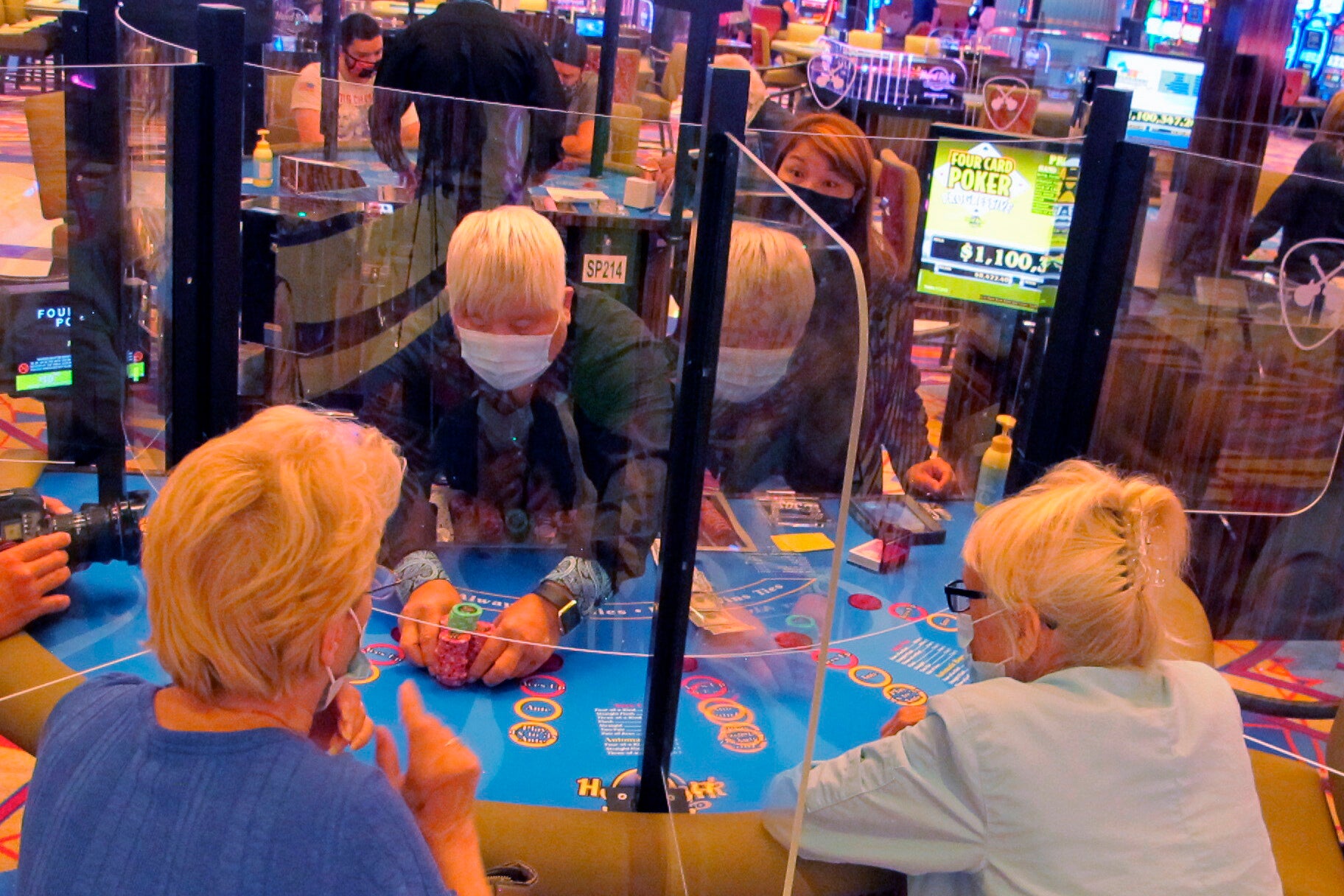Still hampered by virus, U.S. casinos want aid in recovering
The U.S. casino industry is seeking tax and regulatory relief from the government as it tries to recover from a coronavirus outbreak that cost states more than $2 billion in lost tax revenue while casinos were shut down for four months this year

The U.S. casino industry is seeking tax and regulatory relief from the government as it tries to recover from the coronavirus outbreak, which cost states more than $2 billion in lost tax revenue while casinos were shut down for four months this year.
While 90% of casinos have reopened, they are operating at restricted levels to try to slow the spread of the virus, and additional financial aid is needed for casinos and their workers, according to the head of the gambling industry's national trade group.
In his State of the Casinos speech Tuesday at the G2E 2020 conference, held online this year because of the pandemic, American Gaming Association President Bill Miller said the industry is coming back but needs a hand.
“Gaming has never experienced a disruption like COVID-19,” he said. "Over two weeks in March, every casino in America was closed by government-mandated shutdowns, impacting each of the 1.8 million jobs we support.
“Gaming workers, their families, and the small businesses that depend on us have all been hit hard," Miller said. ”And our states and communities are feeling it, too. In addition to COVID’s impact on businesses, jobs, and the well-being of our families, friends and colleagues, state budgets have been decimated by the pandemic."
Detroit lost $600,000 in gambling tax revenue for every day its casinos were shut, he said. The pandemic wiped out $209 million in gaming tax revenue in Maryland and $323 million in Pennsylvania, he added.
The U.S. commercial casino industry took in $43.6 billion in 2019, a figure that is certain to decline this year due to the virus-related closures, the remaining restrictions on occupancy, and the hesitancy of some customers to return to casinos and hotels.
Miller said the casino industry succeeded in gaining access to pandemic relief funds as part of a massive package Congress approved this year — and will insist on inclusion in any future aid package. He did not say how much the industry has received thus far, and the association said it could not provide a figure.
The casinos want liability protection so that businesses that follow public health guidelines cannot be sued by people who contract the virus.
It also wants tax relief to help save jobs, alleviate COVID-19 expenses and help boost consumer travel.
And the casinos, which have long advocated a switch to digital payments, are now pushing them as a public health measure that would avoid the handling of cash by customers and workers.
Miller said 22 states and the District of Columbia have thus far approved legal sports betting.
In an unrelated webinar last week sponsored by Stockton University in New Jersey, Jim Ziereis, vice president of sales for the four Caesars Entertainment casinos in Atlantic City, said casinos have had to adapt quickly to the virus.
“Keep an eye out when you walk around the casino floor. Just about every other slot machine is turned off,” he said. “There are fewer seats at the gaming tables. That contributes to lower revenue.”
Ziereis also said the high number of Americans who have lost and continue to lose jobs is a danger for the casino industry.
“As we move forward, more and more people are being furloughed or laid off,” he said. “It will be very hard to sustain that high rate of visitation.”
___
Follow Wayne Parry at http://twitter.com/WayneParryAC
Bookmark popover
Removed from bookmarks